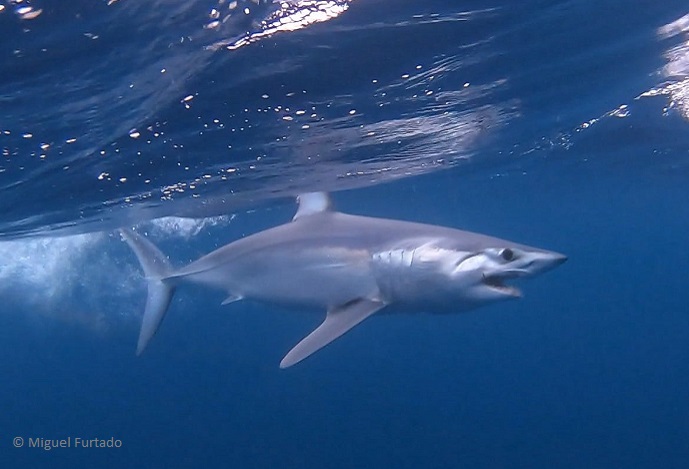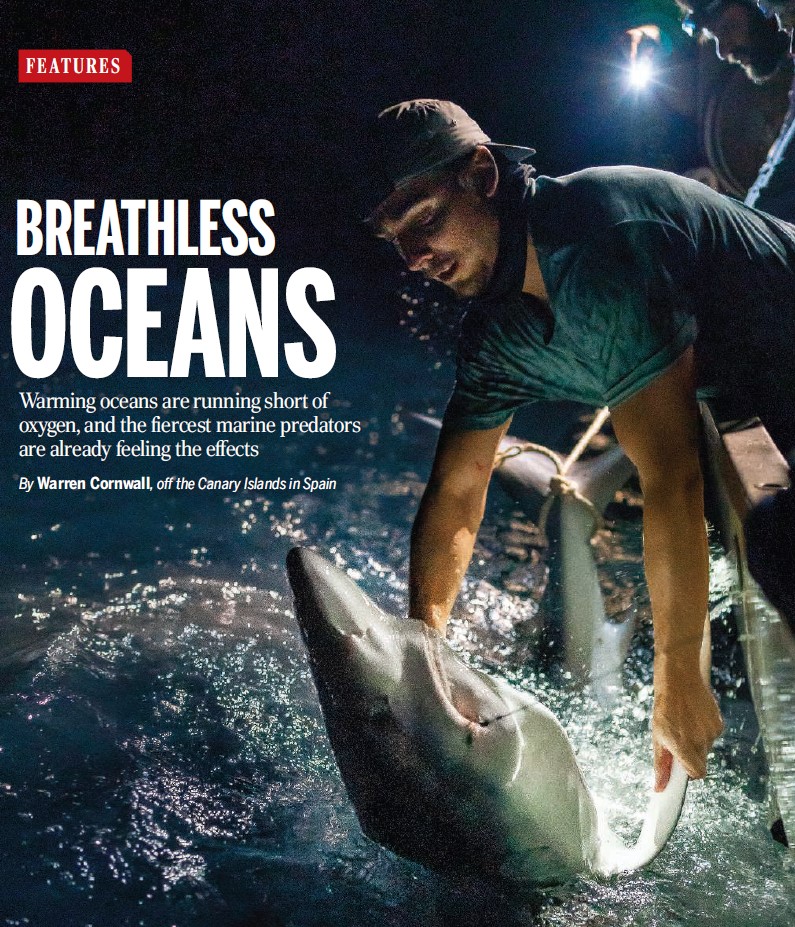BIOPOLIS-CIBIO research on the impact of ocean deoxygenation on pelagic sharks featured in Science
News

Climate change is reducing the amount of dissolved oxygen in the ocean. This process called ocean deoxygenation is caused by a decreased in the oxygen solubility in surface waters as the ocean temperature increases. Over the last 50 years ocean have lost 2% of dissolved oxygen and disturbing forecasts show that oxygen loss in the ocean could reach as much as 20% by 2100. As warming increases the ocean keeps losing oxygen, imposing some threats to marine life and bringing also some impacts to human life that rely on ocean services (e.g., fisheries). The impacts may be particularly profound for large, fast swimming predators, such as pelagic sharks, that sit in the top of the food chain and need to burn lots of oxygen while moving and foraging through large expanses of the ocean.
Research carried out by a team of scientists from David Sims lab of Marine Biological Association (MBA) and MOVE group of BIOPOLIS-CIBIO (University of Porto) on the impact of ocean deoxygenation on pelagic sharks is featured in Science (vol. 379, issue 6631). Over the last years, they have been deploying satellite transmitters and new dissolved oxygen archival tags on the back (dorsal fin) of those animals to trace their movements and oxygen requirements across the Atlantic Ocean, in particular when they enter in hypoxic (low oxygen) waters of eastern tropical Atlantic oxygen minimum zone (OMZ).

